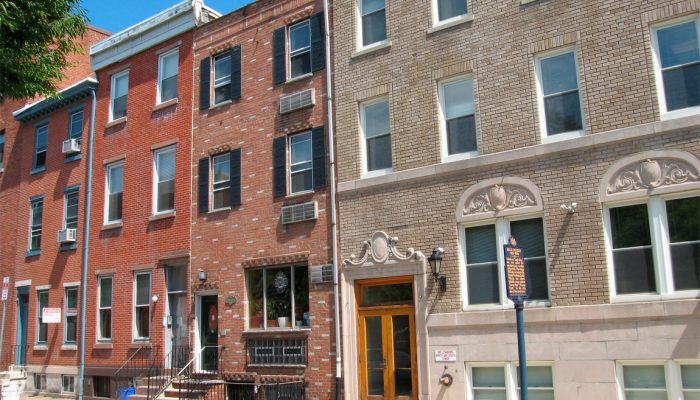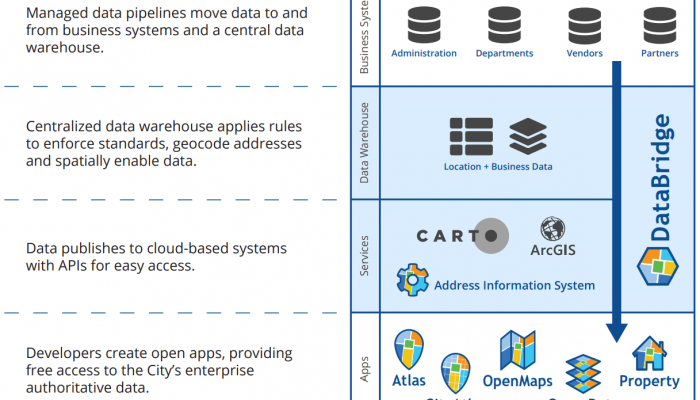When people search for a new home, the focus is often on the appeal of the kitchen, location of the property, and how much a favorite space will end up costing them.
Within Philadelphia, this adventure in house-hunting happens thousands of times a month. And, with it, the filing and recording of numerous documents in order to legally transfer real estate between owners.
Starting October 26, 2018, the data behind these transactions has been released publicly: The Department of Records (DOR) published data for all documents recorded for the last 18 years, including all real estate transfers in Philadelphia. This data shows the dates and location of property sales, deeds, mortgages, and sheriff deeds, and includes associated data, such as any realty transfer tax paid.
Newly released data at a glance:
- The Records Department released a dataset of Real Estate Transfers for the past 18 years, along with metadata.
- A visualization of the data allows you to see how many transfers happen per month, by zip code, and more.
- Please note that 918 transactions have been temporarily omitted while we address data integration issues with these records.
Releasing property records data
The US open data census lists deeds data as one of the higher value datasets for governments to release publicly. Transfers data is one factor considered by property assessors to help determine the value of specific properties. Residents, realtors, and developers can use it to understand where sales are happening the most in the city. And companies who offer up details on properties can now get a direct feed to the real estate transfers dataset.
In addition to deeds, this release provides access to other recorded documents related to properties, by each individual transaction, since December 6, 1999 to the present. For example, this can include documents related to the assignment or satisfaction of mortgages.
A group effort
Publishing real estate transfers involved a tremendous collaboration between four City departments and offices. Most notably:
- DOR and the Office of Property Assessment (OPA) audited 18 years of data to bolster public access to accurate property data.
- the Office of Innovation and Technology (OIT) CityGeo team worked with DOR to translate data from property documents into formats useable in our City apps and as open data. This involved geocoding over 600,000 addresses, and matching properties to their wards and zip codes. This ensures the data shows up properly in maps and makes it easier for the public to quickly see the number of records in particular areas of interest.
This release also helps City government enhance other services we provide the public – like Atlas and the Property app, the City’s online applications that show detailed property information.
Built by the CityGeo team, Atlas allows residents to get detailed information on any address in Philadelphia. Using Atlas, you can:
- Get the history of permits, licenses, and inspections
- Research real estate information like property values, zoning, and document archives
- Get easy access to a variety of hard-to-find City resources
- View recent activity around the address, such as crimes, 311 service requests, and more
- Explore historical imagery and maps
Even with this release of the overall data, to view the actual image of a property’s deed (or other document showing realty ownership), residents will need to:
- Visit the DOR Property Research Room (City Hall, Room 154) in person to search using a kiosk or have staff in the research room assist you.
- Subscribe to Philadox, a searchable online database of documents filed with DOR. The documents are viewable as lists, tables and scanned images of the actual documents, dating back to 1974.
- Subscribe to the Historical Land and Vital Records site to research deeds as far back as 1683 to 1974.
Related data and services
The City has previously released related land and real-estate datasets, including:
- Property assessments
- Property tax delinquencies
- Vacant property indicators, or by percentage by block
- Property building and zoning permits, Inspections, violations, clean and seals, demolitions
- Parcels
- Registered historic properties
- Large building energy benchmarking
The City’s website also provides details on the transfer tax for the sale or transfer of real estate in Philadelphia, as well as outlines various programs to provide homeowners with tax relief.
Keep in touch!
Have your own experience of using open data? Contact oddt@phila.gov to share your story.
There’s lots of ways to get involved. For information about City datasets and others, go to OpenDataPhilly.org. Visit this resources page for video tutorials and links to tools to help analyze data. Follow @PHLInnovation on Twitter to get alerts on future data releases, and join us on the public open data google forum.




